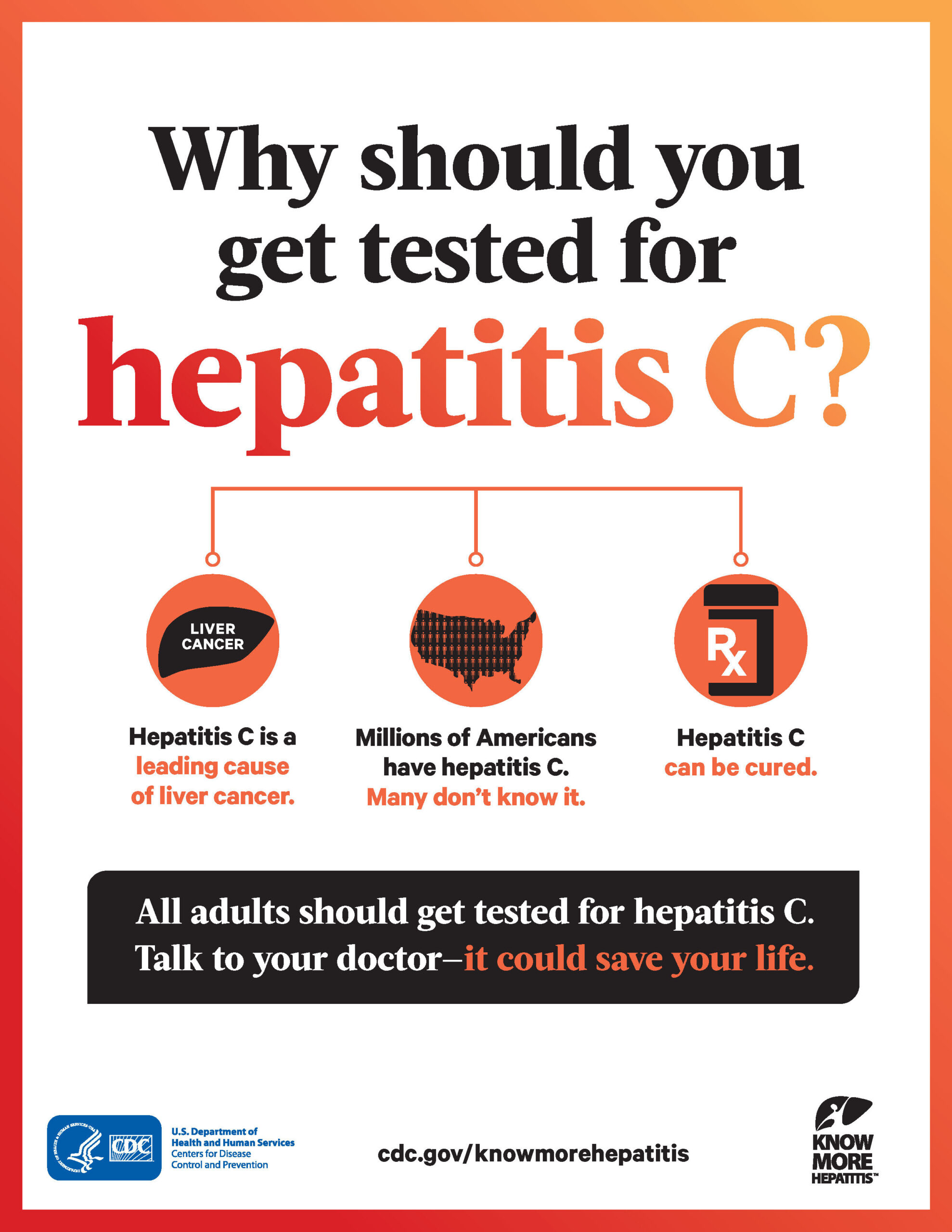What is Hepatitis C?
Hepatitis C is a liver infection caused by the hepatitis C virus (HCV). Hepatitis C can range from a mild illness lasting a few weeks to a serious, long-term illness.
Acute hepatitis c
Develops within 6 months after exposure. While it can be short-term for some, most cases progress to chronic infection.
Chronic hepatitis C
Untreated chronic hepatitis C can persist for life, leading to severe health issues like liver damage, cirrhosis, liver cancer, and potentially fatal outcomes.
An estimated 2.4 million people were living with hepatitis C in the United States.
Transmission
HCV is primarily transmitted through exposure to infected blood.
- Sharing needles or equipment for injecting drugs
- Needlestick injuries in healthcare settings
- Sex with an infected person(s)
- Unregulated tattoos or body piercings
- Sharing personal items that may come into contact with infected blood (even small undetectable amounts)
- Birth (6% chance)
Testing
You should get tested for hepatitis C if you:
- Are 18 years of age and older (get tested at least once in your lifetime)
- Are pregnant (get tested during each pregnancy)
- Currently inject drugs (get tested regularly)
- Have ever injected drugs, even if it was just once or many years ago
- Have HIV
- Have abnormal liver tests or liver disease
- Are on hemodialysis
- Received donated blood or organs before July 1992
- Received clotting factor concentrates before 1987
- Have been exposed to blood from a person who has hepatitis C
- Were born to a mother with hepatitis C
Treatment and Management
What is the treatment for hepatitis C?
Treatment for acute or chronic hepatitis C is recommended for all individuals, including non-pregnant women, children aged ≥3 years, and adolescents. Modern therapies typically last 8–12 weeks, involving oral medication with over 90% cure rates and minimal side effects. The FDA provides a list of approved treatments for hepatitis C.

What can people with chronic hepatitis C do to protect the liver?
Individuals with chronic hepatitis C, including those with cirrhosis, should undergo regular monitoring by a doctor, even if they've been cured, due to the ongoing risk of advanced liver disease complications, including liver cancer.
Those living with hepatitis C should:
- Get vaccinated against hepatitis A and hepatitis B.
- Avoid alcohol to prevent additional liver damage.
- Consult their doctor before taking any medications or supplements, as these could harm the liver.
- Get tested for HIV because co-infection increases the likelihood of developing cirrhosis.
